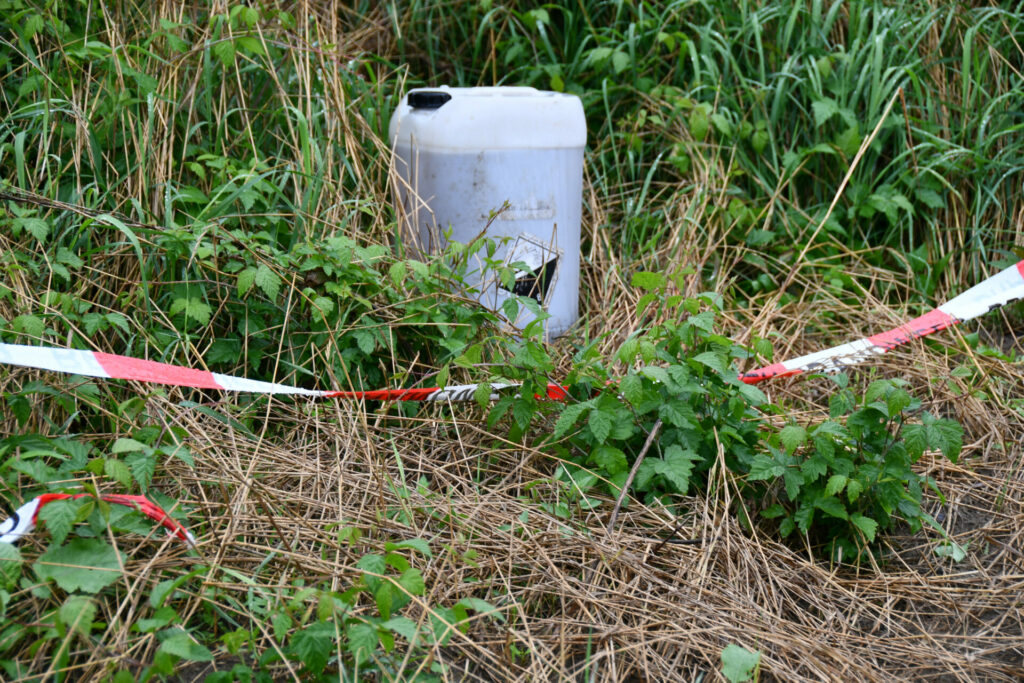Since the beginning of this year, 11 illicit deposits of chemical waste have been discovered in the province of Liège, which is already twice as many as last year.
The phenomenon, called "dumping", involves drums and cans of chemicals being abandoned on private land. These products, acids such as hydrochloric acid or sulfuric acid, and bases and solvents such as acetone, have been used to manufacture synthetic drugs such as MDMA or crystal meth. These are generally toxic, flammable and/or corrosive.
Until now, the dumpings of these products have mainly been recorded in Limburg (Flanders) and the Netherlands, however, criminals are now also coming to dump their waste in Liège municipalities such as Lincent, Hannut and Berloz, according to reports from RTBF.
It is generally estimated that to produce one litre of amphetamine in the form of oil, 15 to 20 kgs of toxic waste are produced.
Recently, a farmer from Lincent discovered barrels in his field that were even still smoking. "There were six barrels and small containers. This is the equivalent of 1300 litres of products from the creation of synthetic drugs," Mayor Yves Kinnard said.
Costly affair
The mayor is furious because the treatment of this waste is now the responsibility of his municipality: "It will cost €4000,” he said. “In other
words, I have to ask each of the 3500 citizens of Lincent to pay more than €1."
According to Kinnard, the region is falling victim to a booming industry in Limburg, to the east of Liège. “We are impacted by these scoundrels who deposit their waste at all costs, it's scandalous."
As more and more drug labs are being discovered, there is also an increase in the number of these dumpings in the wild. "What is new is that it goes beyond the borders of the provinces," Etienne Dans of the Clan Lab Response Unit (CRU) said.
A specialised investigator has been appointed by the federal police to centralise files of this type, while federal police officers are also going to raise awareness in the local police areas, as well as in the municipalities and among local residents, as chemical waste is extremely toxic.

